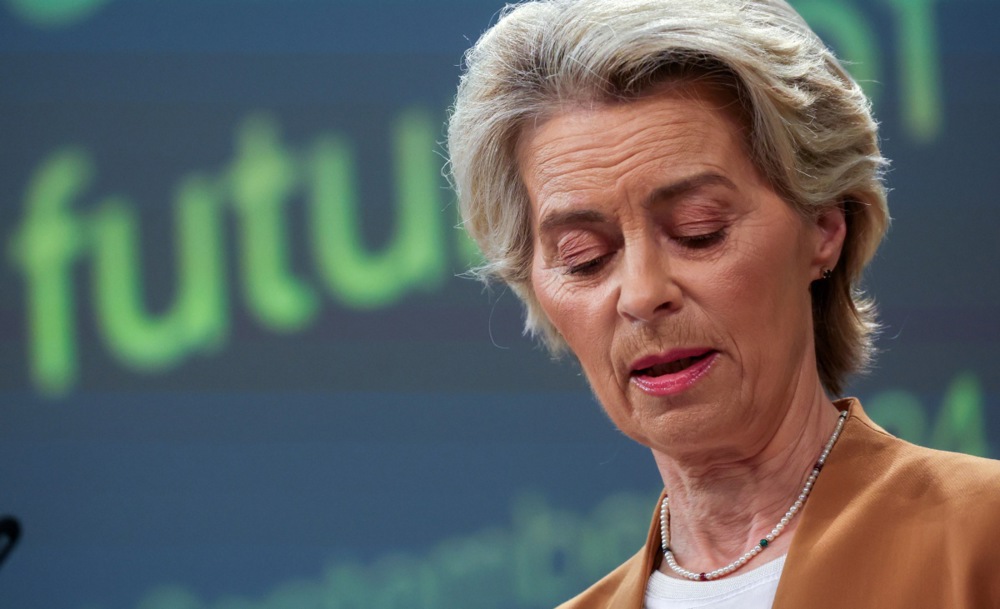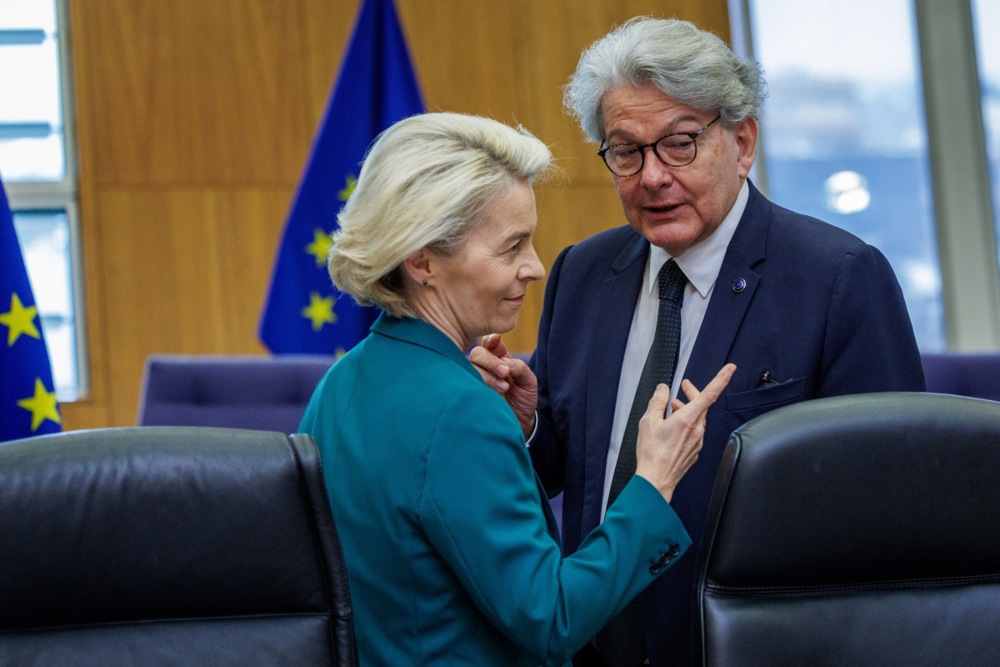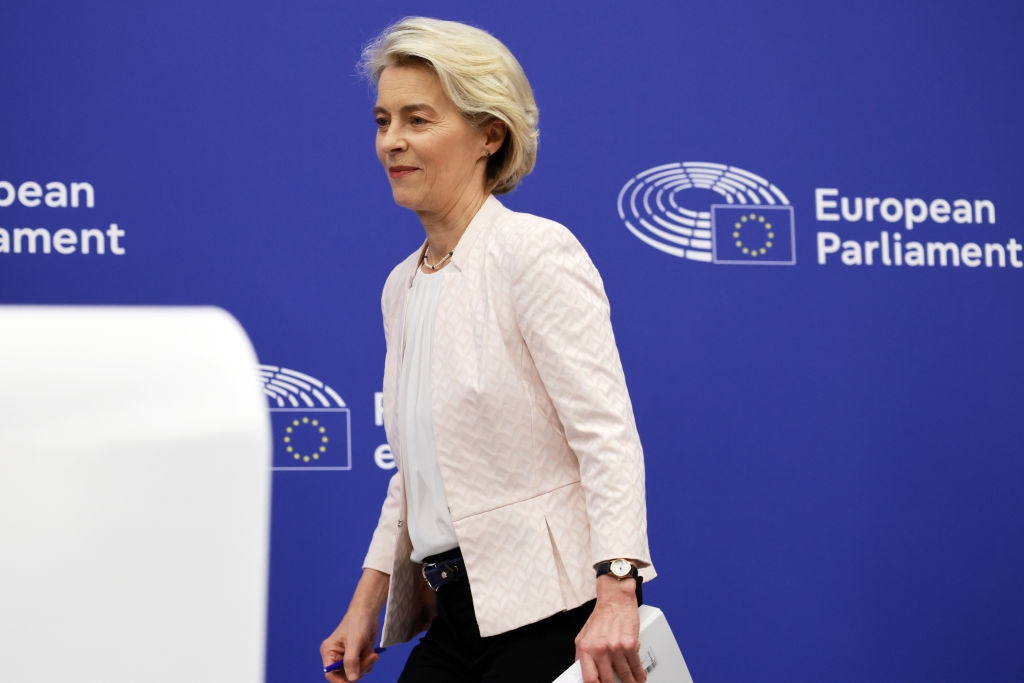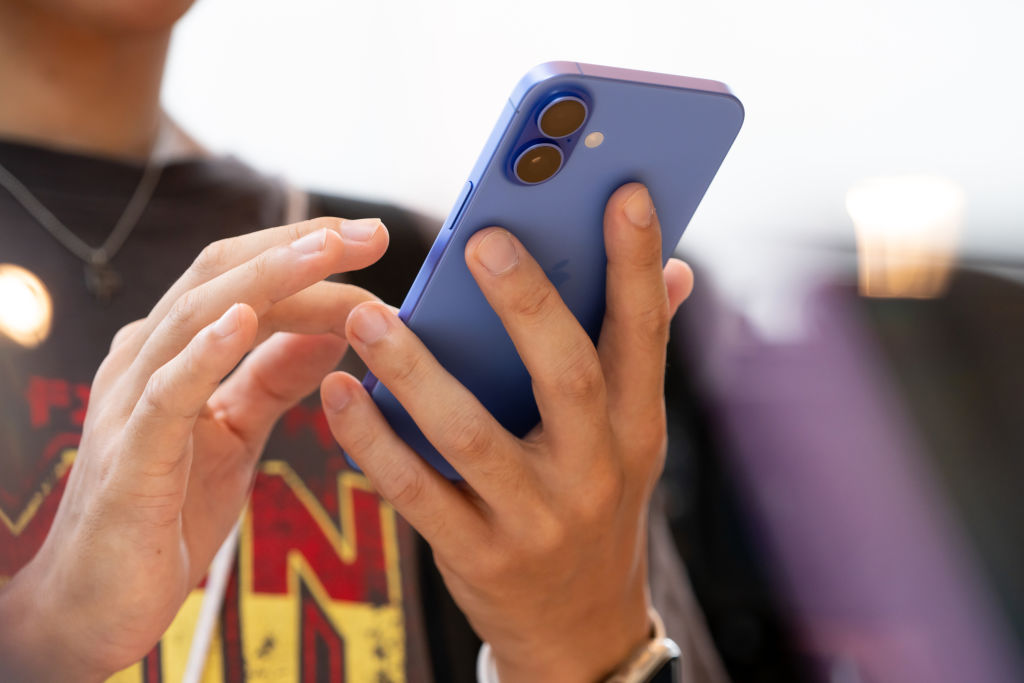European Commission President Ursula von der Leyen has pushed for a tighter defence relationship with the Republic of Korea.
Her call came after it was revealed that 10,000 troops from the Communist-controlled north were now situated on the Russian side of the Ukraine border.
The US has claimed that the 10,000 soldiers deployed by the Democratic People’s Republic of Korea (DPRK) would be pitched against Ukrainian troops within a matter of weeks, prompting condemnation from across the Western world.
Responding to the crisis, von der Leyen lauded the importance of a tighter Brussels-Seoul defence relationship.
She particularly highlighted the joint Security and Defence Partnership agreed by both powers in 2023, describing the launch of the project as “imminent” in a phone call with South Korean President Yoon Suk Yeol on October 28.
“The launch of this partnership is timely and its logic, more valid than ever,” a report of the call revealed von der Leyen as saying.
The report also showed that the EC President repeatedly condemned the actions of North Korea on behalf of the European Union, accusing Pyongyang of escalating the war in Ukraine.
“President von der Leyen also expressed the EU’s concern regarding the deepening of Russia-North Korea military cooperation, which could embolden Pyongyang to further raise tensions on the Korean peninsula.”
The description of the call appeared to line up with that published by Seoul, with the press office of the Korean President describing von der Leyen as speaking in a hawkish manner regarding the Communist north.
“Commission President von der Leyen expressed grave concern over North Korea’s deployment of troops to Russia, which directly violates international law and UN Security Council resolutions, and stressed that this is a serious matter that will further worsen the already protracted war situation in Ukraine, and that she is ready to actively cooperate with South Korea to respond to this,” the Seoul press release read.
“In this regard, she expressed gratitude for South Korea’s decision to send a government delegation to the EU, following NATO, to share information.”
The International Campaign to Abolish Nuclear Weapons (ICAN) said Russia, the US, France, India, China, Israel, the UK, Pakistan, and North Korea spent a total of $91 billion on nuclear weapons last year alone.
Read the full article ?? https://t.co/1bRffKpmNC pic.twitter.com/eHs8fnUm2G
— Brussels Signal (@brusselssignal) July 10, 2024
Von der Leyen’s push for a tighter South Korea-EU defence relationship came amid attempts by Seoul to rally Europeans against its Communist arch-enemy.
South Korean officials have held high-level in-person and over-the-phone meetings with a number of Western powers, with Yoon having phone calls with NATO Secretary-General Mark Rutte and Ukrainian President Volodymyr Zelensky.
Seoul was said to be sharing with Western leaders sensitive information regarding North Korean activity in the region.
“President Yoon said that our government will not sit idly by and watch the military collusion between Russia and North Korea that threatens our security, and will closely observe the battlefield situation going forward and take effective step-by-step countermeasures,” read a Korean press release on the call with Zelensky.
“He also said that while the possibility of Russia transferring sensitive military technology to North Korea is a problem, if North Korea, which has not fought modern warfare since the Korean War, were to teach the experience it gained in the Ukraine war to its entire army of over a million people, it would pose a great threat to our security.”
Seoul was also said to be considering delivering weapons to Kyiv, with some defectors from North Korea also reported to be asking for South Korea’s blessing to travel to the Ukraine front to help with military strategy.
The 200 ex-soldiers said their insider knowledge could give the Ukrainians an edge when it came to fighting North Korean forces.
“We are all military veterans who understand North Korea’s military culture and psychological state better than anyone else,” Ahn Chan-il, the leader of the group of ex-soldiers, was reported as saying.
“We’re ready to go wherever needed to work as psychological warfare agents – through loudspeaker broadcasts, distributing leaflets and even acting as interpreters.”
South Korea has deployed a bedbug sniffer dog at its main Incheon international airport in a bid to reduce the risk of the tiny insects entering the country when athletes, officials, and fans return from the Paris Olympics. https://t.co/PbwhrDts3r
— Brussels Signal (@brusselssignal) August 12, 2024





